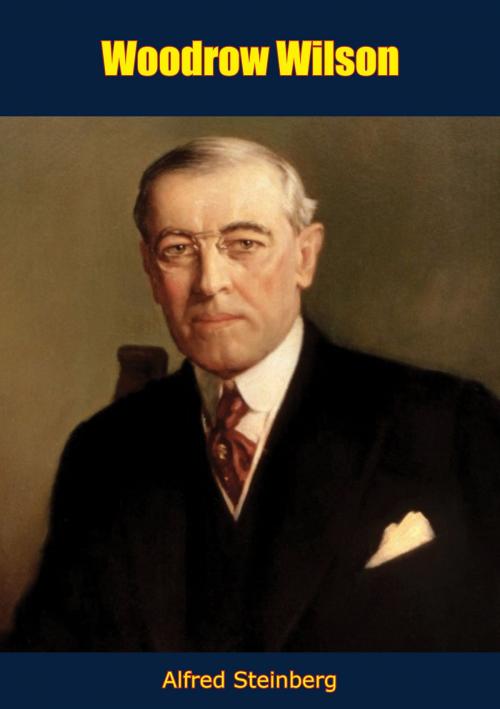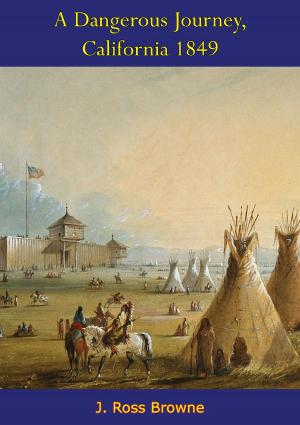| Author: | Alfred Steinberg | ISBN: | 9781787204713 |
| Publisher: | Papamoa Press | Publication: | June 28, 2017 |
| Imprint: | Papamoa Press | Language: | English |
| Author: | Alfred Steinberg |
| ISBN: | 9781787204713 |
| Publisher: | Papamoa Press |
| Publication: | June 28, 2017 |
| Imprint: | Papamoa Press |
| Language: | English |
Few members of the Wilson family expected young Thomas Woodrow to go into politics. It was unthinkable to them that he could do anything but follow the family tradition and go straight into the Presbyterian ministry, as his father and grandfather had done before him. Certainly nothing in his early life hinted that Wilson was Presidential timber—and yet he kept insisting that he intended to become President.
Thomas Woodrow Wilson followed his aim with a single-minded determination that is rare. He grew up in Staunton, Virginia, attended Princeton University, and then, observing that many Presidents enter the White House via the law, took a law degree from the University of Virginia. After languishing in Atlanta for several years with an unsuccessful practice, Wilson charted a new course, and decided to enter politics through the teaching field. Following a short stint at the newly formed Bryn Mawr College and Wesleyan University, he was made professor of jurisprudence and political economy at Princeton. There he remained for twenty-two years, seemingly entrenched in the academic atmosphere. He produced several brilliantly written books and articles, but his political career seemed farther away than ever.
Suddenly, in 1902, Wilson was named president of Princeton, and startled New Jersey political circles by completely overhauling the entire university, both intellectually and socially. Events moved at a rapid pace; Wilson was elected Governor of New Jersey in 1910, and in 1913, twenty-eighth President of the United States.
Citizens of this country saw their new President develop from a militant neutralist to an internationalist, his new beliefs culminating in the League of Nations; from a strong pacifist to a man who bowed to the necessity of declaring war against Germany. He was an intellectual who took decisive action when the occasion warranted and who, above all, fought for his own beliefs.
Few members of the Wilson family expected young Thomas Woodrow to go into politics. It was unthinkable to them that he could do anything but follow the family tradition and go straight into the Presbyterian ministry, as his father and grandfather had done before him. Certainly nothing in his early life hinted that Wilson was Presidential timber—and yet he kept insisting that he intended to become President.
Thomas Woodrow Wilson followed his aim with a single-minded determination that is rare. He grew up in Staunton, Virginia, attended Princeton University, and then, observing that many Presidents enter the White House via the law, took a law degree from the University of Virginia. After languishing in Atlanta for several years with an unsuccessful practice, Wilson charted a new course, and decided to enter politics through the teaching field. Following a short stint at the newly formed Bryn Mawr College and Wesleyan University, he was made professor of jurisprudence and political economy at Princeton. There he remained for twenty-two years, seemingly entrenched in the academic atmosphere. He produced several brilliantly written books and articles, but his political career seemed farther away than ever.
Suddenly, in 1902, Wilson was named president of Princeton, and startled New Jersey political circles by completely overhauling the entire university, both intellectually and socially. Events moved at a rapid pace; Wilson was elected Governor of New Jersey in 1910, and in 1913, twenty-eighth President of the United States.
Citizens of this country saw their new President develop from a militant neutralist to an internationalist, his new beliefs culminating in the League of Nations; from a strong pacifist to a man who bowed to the necessity of declaring war against Germany. He was an intellectual who took decisive action when the occasion warranted and who, above all, fought for his own beliefs.













![Cover of the book Four Years with Morgan and Forrest [Illustrated Edition] by Alfred Steinberg](https://www.kuoky.com/images/2018/april/300x300/9781789121216-Va0p_300x.jpg)

